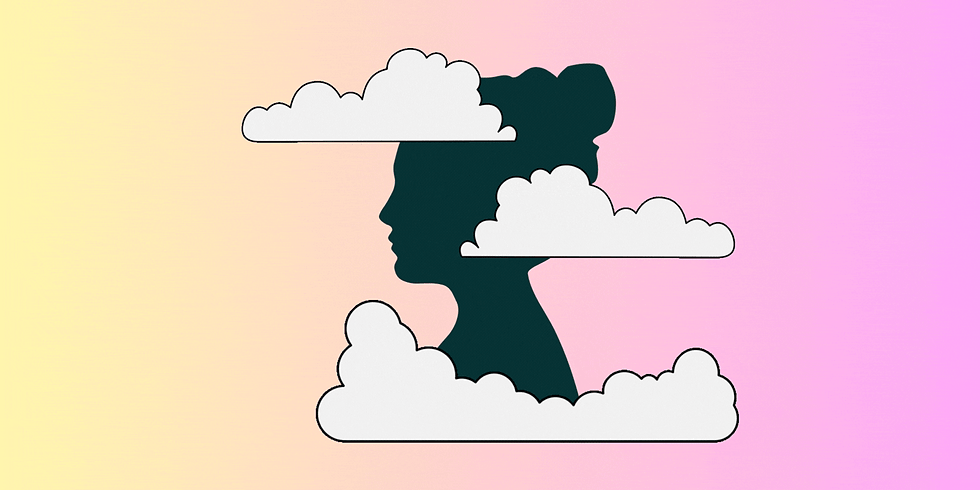Is Social Isolation Affecting Our Social Skills?
- Team Nolmë Labs

- May 29, 2021
- 4 min read

As India currently experiences a deadly second wave of the Covid-19 virus, Maharashtra, India’s worst affected state, has gone into lockdown again. India has now surpassed Brazil to become the country with the second-highest number of cases, and many states are running out of hospital beds, ventilators and vaccines, resulting in several preventable deaths and widespread grief and trauma. It has never been more important for us to isolate ourselves and keep away from gatherings of all kinds, no matter how essential they may seem.
Since the nation-wide lockdown was announced way back in March 2020, I have barely stepped out of my home in Mumbai or interacted with people other than my parents. As the months in lockdown progressed, I slowly started to notice a change in the way I socialized — simple video and phone calls started to make me feel tired and I felt strangely disconnected from my friends and family. The longer I stayed indoors, the more my anxiety in stepping out and interacting with people went up. Other Indians have echoed my sentiment, reporting that prolonged periods of isolation have led to a sense of increased anxiety at the prospect of meeting people in person. Thus, I started wondering if social isolation could be affecting our social skills.
Well, maybe. It has been established that social isolation leads to several mental and physical health problems, and could increase mortality risk by 29%. Several experts say, however, that there isn’t enough conclusive evidence or research to prove that months in social isolation could have a permanent effect on adults’ socialization skills, simply because we haven’t been through a global pandemic like this in the last few decades, and there’s no similar situation that can compare. Even astronauts, for example, are prepared to be socially isolated and choose to undergo isolation voluntarily.
A number of people have reported a regression in their social skills. Some researchers feel that the new social awkwardness people are facing come simply from navigating the new normal. Everybody has different levels of comfort with interaction: for instance, at a house party, I may be comfortable with temporarily slipping off my mask to talk and approaching you for a handshake or hug, while you may prefer to keep a 6-feet distance from others at all times.
It is important to remember that not all of us are going through this with the same mental state. Though the pandemic has been heralded by many as the great equalizer, there are several groups that have disproportionately affected. For instance, people who suffer from social anxiety, depression, substance abuse, loneliness or other mental health issues may take a harder hit, and have more trouble socialising both during the pandemic, as well as when they attempt to reintegrate themselves into society.
Additionally, children (especially those without siblings) may be especially negatively affected, as their cognitive, social and moral development is dependent on playing with and interacting with peers around their own age. Some parents have even reported that they have noticed their children showing regressive behaviours.
While all children are susceptible to ill effects, children with disabilities are especially vulnerable. Parents of children with disorders like autism spectrum disorder have reported that their children have lost speech and social skills, and even engaged in self-harm. Since the therapy for such disorders needs to be consistent and face-to-face, parents are concerned that their children will be considerably set back. Children who have learning disabilities or are socially anxious may also have a harder time socializing than their peers when things return to normal.
There is also a critical difference between isolating with immediate family members and isolating completely on your own. Neill Ansell says that when you’re alone for a long period of time, you start to lose sense of who you really are. Being perceived and acknowledged by your community is important because it contributes to the formation of your social (and even personal) identity. Thus lost sense of self can make it harder to reintegrate into society and interact normally with others.
Research has stated that prolonged isolation can lead to a decline in cognitive functioning, though returning to normal patterns of socialization can reverse this effect, as well as improve social skills, enhance memory and improve concentration. However, a return to normalcy doesn’t seem to be on the horizon, and avoiding non-essential outings and interactions remains of paramount importance.
So, is there anything we can do? Some people have been opting for a harm-reduction approach to socializing, which aims to minimize the potentially harmful effect of risky behaviours. This may involve solely interacting with just 1-2 close friends and family, or only those that have tested negative or been fully vaccinated. Additionally, though technological modes of communication (phone and video call, social media, multiplayer gaming) can’t replace face-to-face interactions (and it is definitely a privilege to have access to electronic devices and a stable internet connection), they can definitely help. Experts say that those who keep in touch with their loved ones online regularly may be able to reduce societal re-entry awkwardness. Finally, being there and doing good things for others could go a long way in helping people feel connected to each other even from afar.
Amalina (she/her) is a Mental Health Advocate at Nolmë Labs. She enjoys conducting research on topics related to mental health and is an aspiring social scientist.








Comments